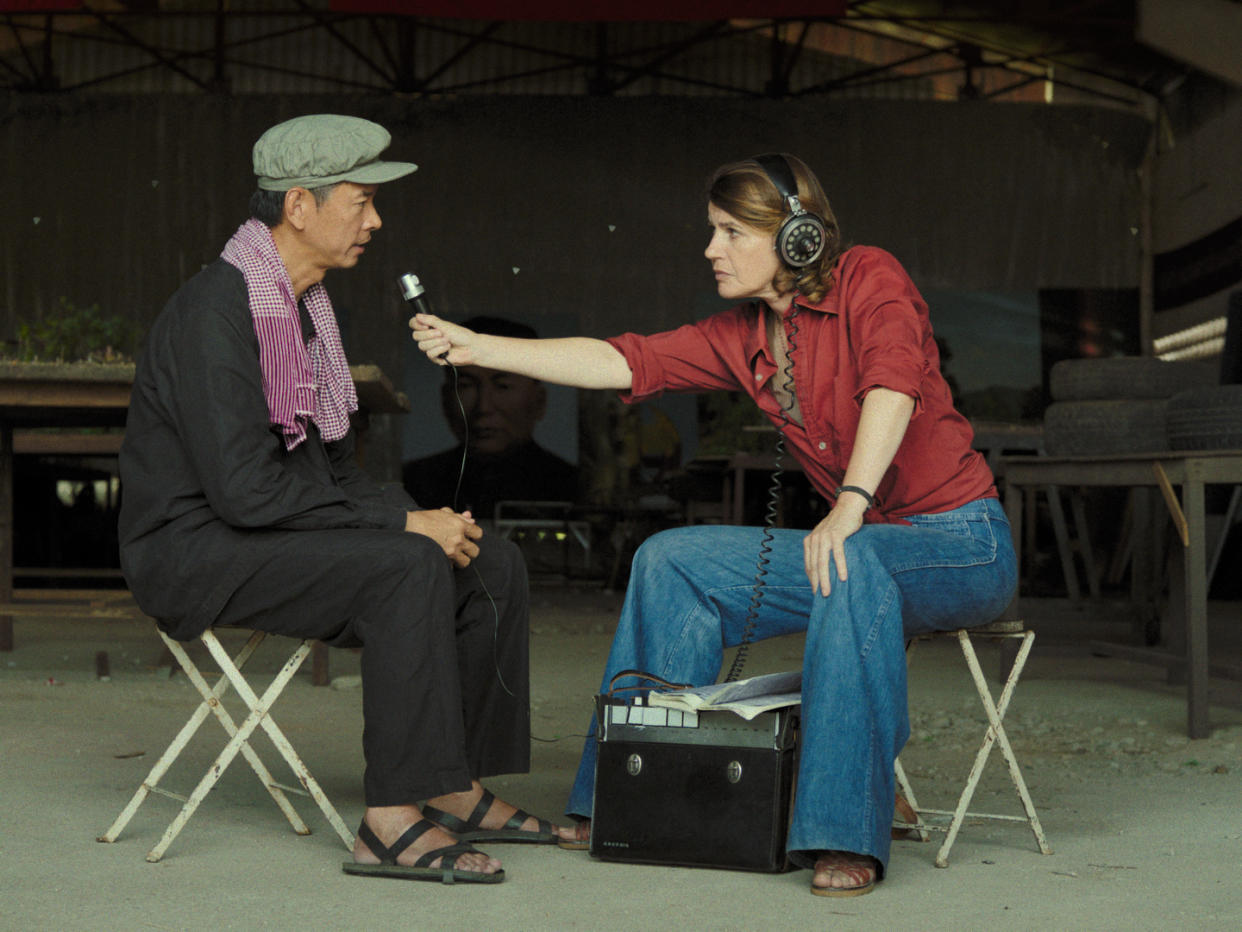‘Rendez-Vous Avec Pol Pot’ Review: Rithy Panh’s Return To The Killing Fields Spotlights Importance Of Today’s Conflict Journalists – Cannes Film Festival

Rithy Panh has dedicated the lion’s share of his career to interrogating the genocidal Khmer Rouge era in his native Cambodia, and it is no trivial obsession. Panh fled Phnom Penh when he was just 11, and after his family was devastated in the Killing Fields, he escaped to a Thai refugee camp at 15. Now 60, Panh has been committed to keeping the memory of the impact of Pol Pot’s tyrannical regime alive in documentary, narrative and animated film.
His 2013 feature The Missing Picture blended archival footage with clay figures re-creating the atrocities of the genocide, and the film was nominated for an Academy Award after picking up the top prize in Cannes’ Un Certain Regard section. His return to Cannes this year with Meeting with Pol Pot (Rendez-vous avec Pol Pot), in the Premiere lineup, brings that blend back to the screen, interweaving it into a narrative about three French journalists who fly to Democratic Kampuchea, as the regime called the country, in 1978 in the hopes of an exclusive interview with Pol Pot.
More from Deadline
Loosely adapted from journalist Elizabeth Becker’s account of her visit to Phnom Pehn with academic Malcolm Caldwell and journalist Richard Dudman in When the War Was Over, Panh’s story follows Lise (Irène Jacob), Alain (Grégoire Colin) and Paul (Cyril Gueï) on a tightly stage-managed tour of the regime’s policies in action ahead of an exclusive interview with Pol Pot. Alain, as the Caldwell cipher, is ideologically aligned with the Khmer Rouge, but his colleagues’ attempts to see past the spin is treated with suspicion, and ultimately violence.
RELATED: Cannes Film Festival Photos
It isn’t the first time Panh has flirted with Becker’s work in the region. His 1996 documentary Bophana: A Cambodian Tragedy also adapted an excerpt of her experience. But Panh’s singular examination of this dark chapter in his country’s history, and the ways its impact is still being felt, over a long career in cinema, has kept the memory of this genocide alive, and Rendez-vous avec Pol Pot feels particularly piquant as the post-truth era continues to impact Western politics.
The three leads play their roles well, but there is nothing overtly cinematic about Panh’s execution of this tale. It doesn’t matter; instead, the way Pol Pot’s ideologies hang in the air, both in the tension between the journalists and their authoritarian “caretakers” and in the words the man himself spins in his attempt to offer a sanitized interview, is where the film lies, and it is a siren sound for a world that risks perpetuating lies in place of truth.
RELATED VIDEO
The journalists in Panh’s film aren’t superheroes; their quest for that truth has its own motivations. Yet, the importance of their journey to find it cannot be understated, especially as newsrooms seek to cut back on ground coverage of war, and regimes continue to restrict access. When Gueï’s photojournalist snaps an illicit photograph of emaciated bodies half-buried in mud, Panh intercuts real photographs from the Killing Fields, and there is no denying their impact.
Rendez-vous avec Pol Pot may not walk totally fresh ground for Panh, but there is real power in one filmmaker’s dedication to re-examining real world horror from many angles over many years.
Title: Rendez-vous avec Pol Pot (Meeting with Pol Pot)
Festival: Cannes (Premiere)
Director: Rithy Panh
Screenwriter: Pierre Erwan Guillaume
Cast: Irène Jacob, Grégoire Colin, Cyril Gueï
Sales agent: Playtime
Running time: 1 hr 53 min
Best of Deadline
Broadway Spring 2024: Sufjan Stevens ‘Illinoise’ & All Of Deadline’s Reviews
Berlin Film Festival 2024: Award Ceremony, Film Premieres & Red Carpet Gallery
Sundance Film Festival 2024 Photos: Award Ceremony, Film Premieres & Parties Gallery
Sign up for Deadline's Newsletter. For the latest news, follow us on Facebook, Twitter, and Instagram.


